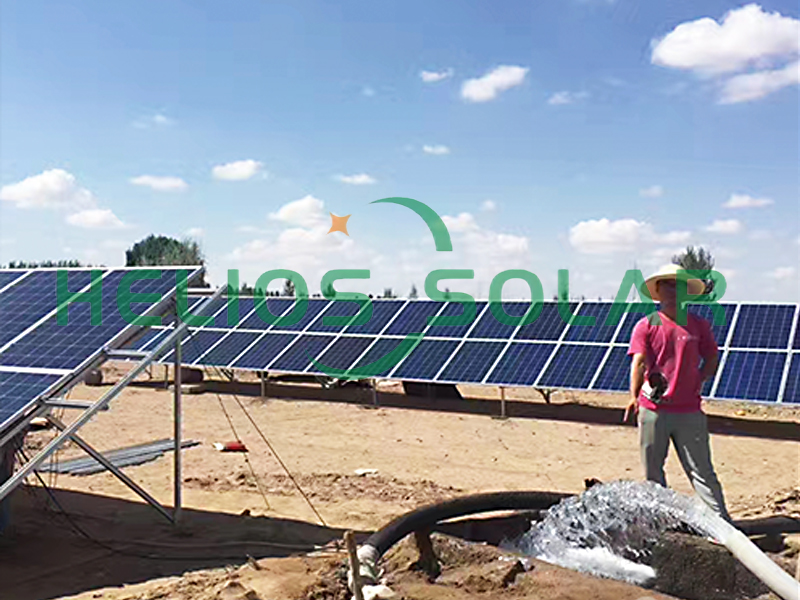Solar energy has emerged as a revolutionary form of renewable energy, providing sustainable and cost-effective solutions for a variety of needs. One such application is solar water pumps. As the name suggests, solar water pumps use solar energy to operate and require no electricity or fuel. At the heart of this innovative system are solar panels, which play a vital role in harnessing abundant solar energy and converting it into usable electricity.
Components of solar water pump
Solar water pumping systems consist of multiple components including solar panels, controllers, motors, and water pumps. However, solar panels form the backbone of the system, serving as the primary energy source. Let’s explore the intricacies of solar panels and their role in the function of a solar water pump.
Solar panel
Solar panels, also known as photovoltaic (PV) panels, are combinations of solar cells that convert sunlight directly into electricity. These solar cells are made of semiconductor materials (mainly silicon) and have a photovoltaic effect. When exposed to sunlight, the solar cells generate an electrical charge that powers various devices, including water pumps.
The efficiency of a solar panel depends on its ability to absorb sunlight and convert it into electricity. The design and quality of solar cells are critical to maximizing efficiency. Monocrystalline and polycrystalline solar panels are the most commonly used types in solar water pumps.
Monocrystalline solar panels are made from a single crystalline structure for greater efficiency and durability. These panels have a uniform black appearance and are easily identifiable by their rounded edges. Due to their higher efficiency, monocrystalline solar panels are often preferred when space is limited or efficiency is critical.
On the other hand, polycrystalline solar panels are composed of multiple crystal structures and therefore have a slightly lower level of efficiency compared to monocrystalline solar panels. They have a distinctive blue color and a square shape with no rounded edges. However, polycrystalline panels are more cost-effective and may be a suitable choice when space is not a constraint.
How solar panels work
Regardless of the type, solar panels work the same way. When sunlight hits a solar cell, the photons in the sunlight dislodge electrons from the atoms, creating an electric current. This current is then captured by the solar cells and delivered to a connected controller, which regulates the flow of energy to the motors and pumps.
The capacity and size of solar panels are key factors to consider when choosing a solar water pumping system. The size required for a solar panel depends on the power requirements of the pump, the amount of sunlight available at a particular location, and the required pump capacity. These factors must be carefully analyzed to ensure that the system operates optimally and efficiently meets pumping demands.
Advantages of solar panels
In addition to providing the required electricity for water pumps, solar panels have many advantages. First, they utilize clean and renewable energy, reduce dependence on fossil fuels, and contribute to a green environment. Solar power is abundant and available in most places, making solar water pumps suitable for both rural and urban areas.
In my opinion
Solar water pumps are cost-effective in the long run as they eliminate or significantly reduce electricity and fuel bills. Once installed, the solar panels require minimal maintenance, further reducing operating costs. This makes them an attractive investment, especially for agriculture, irrigation, and community water applications.
In conclusion
Solar water pumps are an innovative and environmentally friendly solution for a variety of water pumping needs. Its main component, the solar panel, harnesses solar energy and converts it into electricity to power the water pumping system. Understanding the vital role solar panels play in a solar water pumping system can help in making an informed decision while selecting a system that suits specific requirements. By embracing solar technology, we can pave the way for a sustainable future and ensure access to clean water without harming the environment or future generations.
Radiance has the most efficient solar panels, welcome to contact us to read more.
Post time: Jul-19-2023


